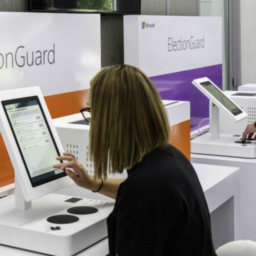Though enterprises were once tentative about using so-called bug bounty programs to detect vulnerabilities, researchers are proving to be effective and trustworthy partners in assessing security risks.
Bugcrowd’s inaugural “State of Bug Bounty Report” highlights the bourgeoning economy of bug bounties. In short, a growing reliance on the skills of security researchers across the globe is building a competitive platform for traditional hackers the world over.
During its 2 ½ year-long study, Bugcrowd – a cybersecurity firm that combines a vulnerability platform with a crowd of security researchers – reported that they had, “Discovered a total of 729 high-priority vulnerabilities across 166 programs, where 175 of those vulnerabilities were deemed ‘critical’ by trained application security engineers.”
Researchers from South America to India to the Philippines are being generously compensated for their work in finding these vulnerabilities, which then saves enterprises hundreds of thousands of dollars by detecting weaknesses before deployment, which prevents attackers from infiltrating the network.
According to Jason Haddix, Bugcrowd’s director of technical operations, enterprises need to consider the many layers necessary to defend against threats because of the evolving demands of cyber security. Bug bounties are a way to bring together the supply and demand, which has given rise to private bug bounty programs.
Historically, the issue with bug bounties has been that a lot of corporations don’t trust the process. After all, the programs rely on hackers, who are often seen, rightly or wrongly, as having criminal intent. Different bug bounty providers have different vetting processes for winnowing out those who are deemed less trustworthy, thus making the private bug bounty program more appealing to more conservative enterprises.
“2014 brought unprecedented participation in crowdsourced and static bug bounty programs, and 2015 will surely outpace this number,” Bugcrowd said in a prepared statement. Clearly, the number of enterprises that are finding value in these programs is exploding. Bugcrowd’s research also showed that companies such as large and diverse as Western Union, Tesla Motors and United Airlines had all started bug bounty programs. Western Union – who started a bug bounty program in 2014 – had rewards ranging from $50 to $5,000. Tesla Motors’ program started earlier this year and offers rewards from $25 – $1,500.
For its part, United Airlines (who’s program also began this year) recently reported, “We are committed to protecting our customers’ privacy and the personal data we receive from them, which is why we are offering a bug bounty program – the first of its kind within the airline industry.”
Casey Ellis, Bugcrowd’s CEO, called bug bounties, “the rise of the geek economy for hackers,” and noted that there are a variety of different platforms available depending on the needs of different organizations. These platforms, according to Ellis, are “a more efficient way to connect supply and demand.”
Source: CIO.com



